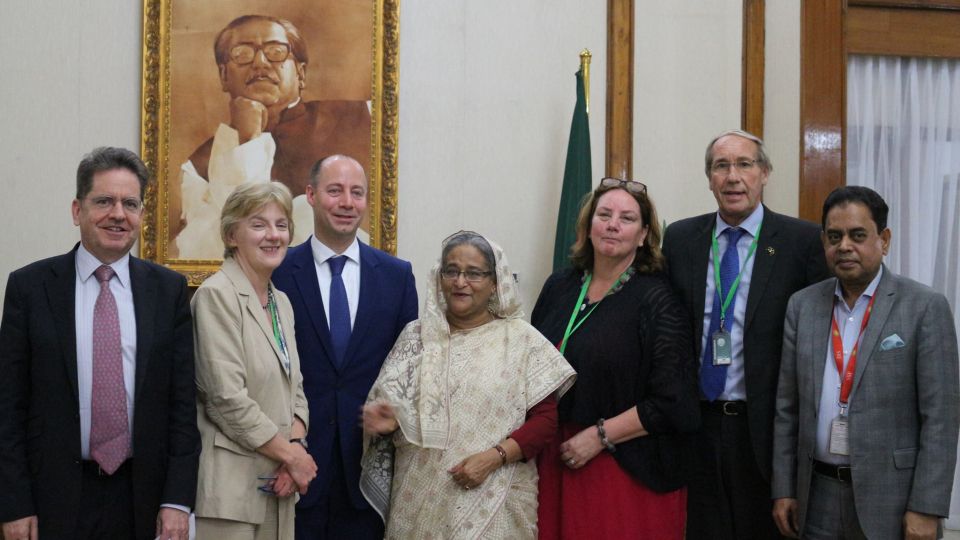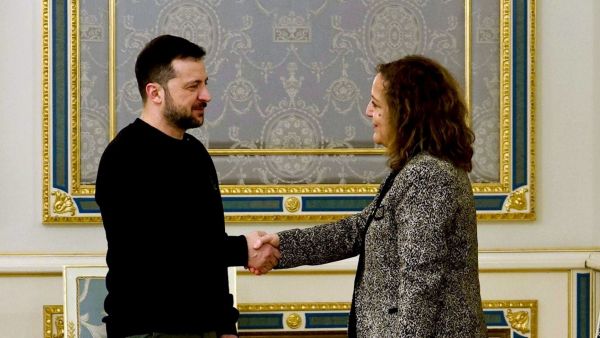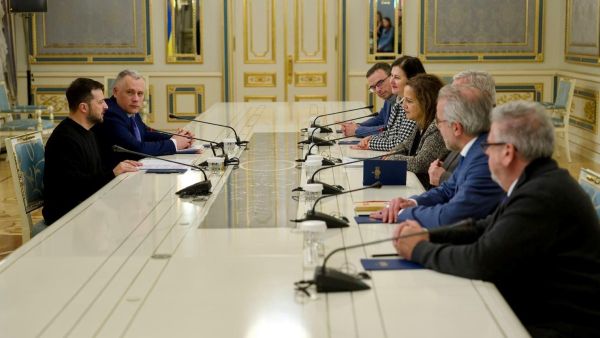Improving relations through social dialogue, respect for human rights and labour rights is imperative in building a responsible and sustainable garment sector in Bangladesh, say S&D MEPs.
The garment supply chain is on the political agenda of the European Union. Following the votes in the committee on development (DEVE) on 21 March on a resolution on garments which calls for the European Commission to come up with a set of binding rules in the garment supply chains, and ahead of the April votes in plenary, the whole issue of fairness in the garment supply chain cannot be underestimated.
A delegation of four S&D DEVE MEPs, led by Arne Lietz, visited Dhaka in Bangladesh on a 3-day fact-finding mission. Members of the delegation visited a RMG (ready-made garment) factory under remediation and a leather shoe factory that exports about 90% of its products to the EU. The delegation established that whilst there has been an improvement in the implementation of safety conditions, more possibilities for collective bargaining should be opened as well.
Bangladesh was mentioned under a special paragraph the last International Labour Conference (ILO) in Geneva in June 2016. The ILO called on Bangladesh to address four issues: full alignment of the Export Processing Zone (EPZ) draft law, the Bangladesh Labour Act (BLA), with the UN core Labour Convention, modalities for establishing trade unions and the right of trade unions to operate freely.
S&D MEP Arne Lietz, head of the mission, said:
“Bangladesh has improved on a large scale regarding development in the garment sector with ACCORD and ALLIANCE on building and workplace safety as encouraging examples of what can be achieved when companies, governments and workers pool efforts to improve standards.
“We had separate meetings with the speaker of the Parliament, the Minister of Commerce, H.E. Tofail Ahmed, State Minister of Labour and Employment, H.E. Md. Mujibul Haque, the Bangladesh Garment Manufacturers and Exporters Association (BGMEA), the brands and labour representatives, as well as the ILO, the chairperson of the opposition, Begum Khaleda Zia and a peace laureate Professor Muhammad Yunus. The delegation also had the honour to be received by Her Excellency, Prime Minister Sheikh Hasina.
“We felt a readiness and good will from all parties to engage in dialogue on issues of labour rights and we are hopeful that this will translate into concrete progress before the May review of the Sustainability Compact in Dhaka and the Geneva ILO conference in mid-June.”
S&D MEP Linda McAvan, EP chair of the committee on development, said:
“Bangladesh has achieved a remarkable track record of economic growth with a corresponding rise in human rights development in the past decades. The garment sector, which is the focus of our visit, has played an important role in that growth and we can see that there have been improvements in both buildings and work place safety since the Rana Plaza tragedy four years ago.”
Nobert Neuser, S&D DEVE co-ordinator, said:
“As members of the Progressive Alliance of Socialists and Democrats in the European Parliament, our engagement with Bangladesh, as with other countries, is guided by our core values, where respect for human rights and labour rights - in particular freedom of association and collective bargaining - rank high. That is why the full implementation of the Sustainability Compact is so important in our view.”
S&D MEP Agnes Jongerius, member of the committee on employment and social affairs (EMPL) and the committee on international trade (INTA) said:
“The strengthening of the labour union through capacity building is an essential part of any functioning labour market and industrial relations. Therefore, we urge the Bangladeshi government to invest in this area in the RMG sector.”
Media gallery
Related content
Find out more









